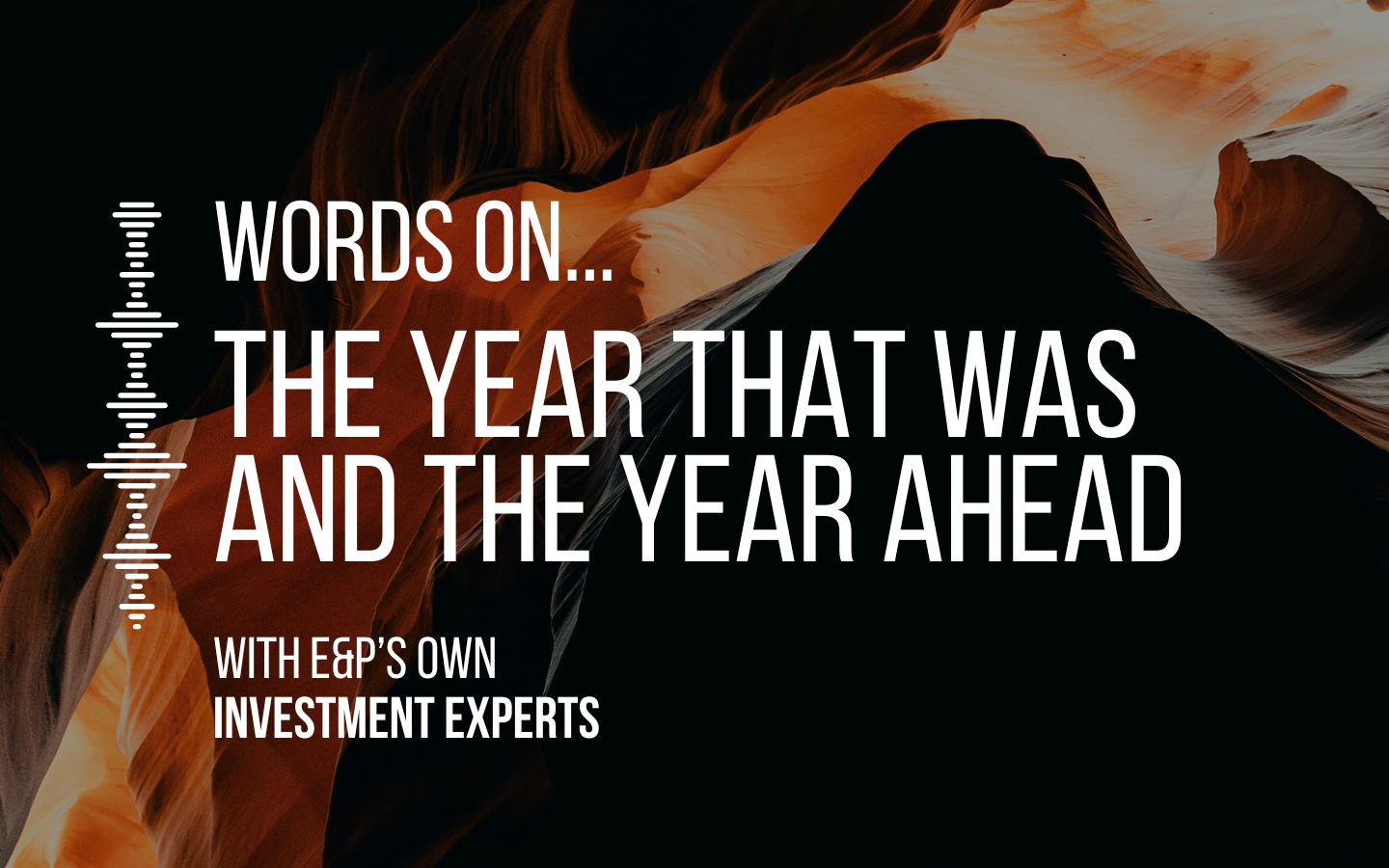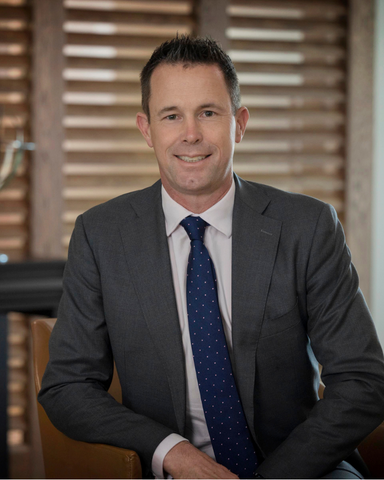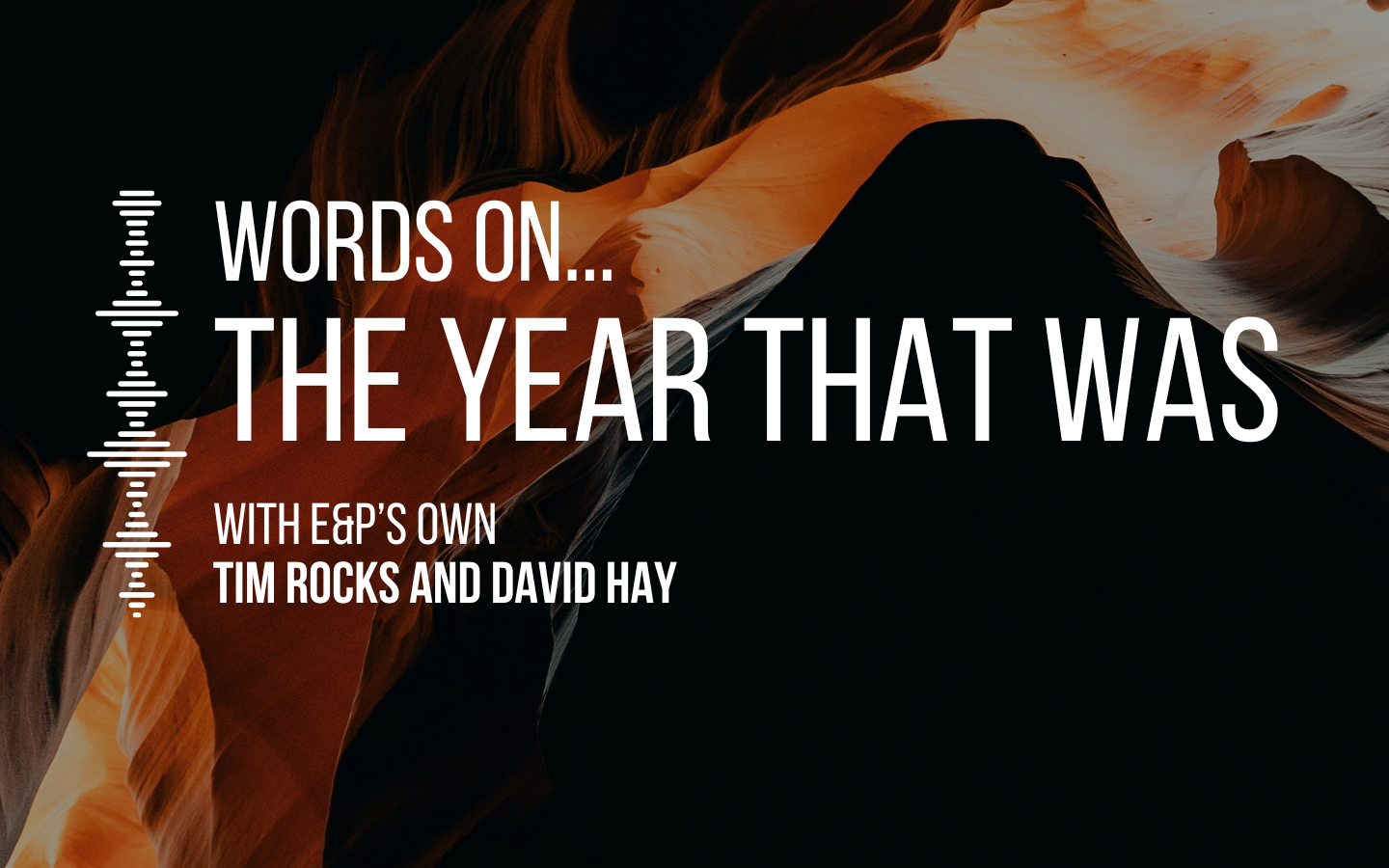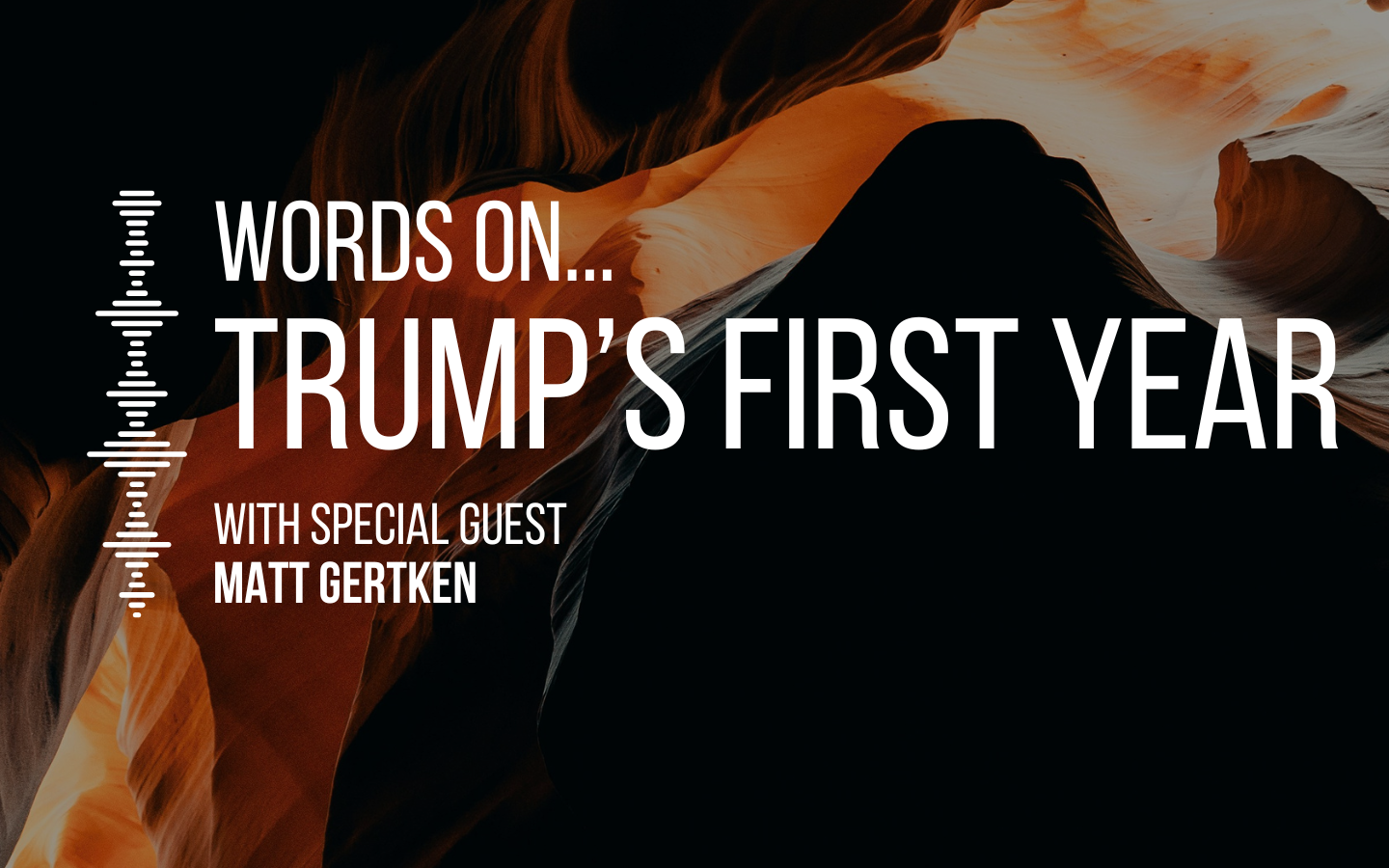


This episode is also available on Apple Podcast.
Disclaimer
This podcast was prepared by Evans and Partners Pty Limited AFSL 318075.
Any advice is general advice only and was prepared without taking into account your objectives, financial situation or needs. Before acting on any advice, you should consider whether the advice is appropriate to you. Seeking professional personal advice is always highly recommended. Where this presentation refers to a particular financial product, you should obtain a copy of the relevant PDS, TMD or offer document before making any investment decisions. Past performance is not a reliable indicator of future performance.
Directors, employees and officers of Evans and Partners and its related bodies corporate may have holdings in the securities discussed. Any taxation information is general and should only be used as a guide.
This communication is not intended to be a research report (as defined in ASIC Regulatory Guides 79 and 264). Any express or implicit opinion or recommendation about a named or readily identifiable investment product is merely a restatement, summary or extract of another research report that has already been broadly distributed.
David Hay
Welcome back to Words on Wealth. My name’s David Hay, Senior Investment Advisor. I’m joined by our Chief Investment Officer, Tim Rocks. Tim, great to have you back, welcome.
Tim Rocks
Thanks David, always a pleasure.
David Hay
We’ll do a bit of a recap on a number of topics today. ⁓ Let’s start with the T and R words, Trump and recession. Hopefully we might be able to put this to bed, certainly in respect to recession, Tim, but that’s maybe my view. What’s your view? Are the fears behind us, ⁓ or is the potential for the US to move into recession with these tariff changes actually starting to come through? Is that a real thing?
Tim Rocks
Yeah, look, I mean, I think we’re all got a bit too jumpy back in April when the Trump stuff first happened. It now looks as though those fears are overdone. I mean, partly that’s because the tariffs have been less than was initially promised. A lot of it is because companies have decided to take the hit. Perhaps we can talk about that when we talk about earnings. But the other thing that’s really important is there’s just other stuff going on that’s actually pretty interesting. And AI is just one of those really, really big things. I mean, we’ve been talking about AI as a interesting sort of market theme for a while, but it’s actually now quite a big macro factor. If you look at what those big four IT companies are spending, on building data centers to support AI, the numbers are just off the chart. It’s 400 billion US dollars per year. That’s more than 1 % of GDP. So that alone is enough to actually, you know, offset weakness elsewhere. So I think, yeah, that’s all into the mix. But look, we still need to wait and see. There’s no doubt there are lots of moving parts in that economy. There’s been some recent concerning news about the consumer falling in the US. But anyway, like that’s just not recession. It’s just, it’s something milder. It’s probably is a downturn. You can argue about whether that’s pricing or not. But that big picture fear that we were dealing with in April is just is off the cards now.
David Hay
We’ll get to that AI spend in a minute. I think the number for memory on was at Microsoft or Google was something like 60 or $70 billion, which that is staggering. But let’s go back to that earnings piece, Reporting season, what do we take out of earnings? And I’ll put to you that the companies at this point are potentially absorbing some of the margin pressure of TAF, passing a little bit on to consumers and forcing suppliers to share some of the pain. Could we get a, is there a point coming where if the day comes that the line in the sand is done, that’s what’s in, that company behavior changes and they start to pass a bit on or the supplier say, I’m not supporting you? Is there bit of a danger there at some point?
Tim Rocks
⁓ Sure, absolutely. mean, this could take still play out over a longer period. But the message from the earning the US earning season that just completed which was for that that second quarter of the year was actually pretty good. There was no meaningful slowdown in earnings growth. In fact, a lot of companies were beating forecasts. And what we’ve learned was that companies had the capacity to deal with the tariffs by either cutting costs, talking about redoing supply chains, ⁓ and also effectively just taking a little bit on margin. And so, yeah, it’s easy to forget these things, but companies can be dynamic, companies are aware of those risks ⁓ and have ways to deal with it. So I think that’s very encouraging. You’re right, there still could be further issues, further price rises, further sort of pressure down the track. But again, the scale of that risk is far worse than it looked in April of this year. And I’d also have to say, like when you’re thinking about broadly what’s driving markets, there’s a lot of other stuff going on as well. The US, kind of market economy, households have been flushed with cash for a long time. We know that things like private equity firms have a lot of funds sitting waiting to invest. Trump might force a rate cut, the economy probably doesn’t need. So all these things are kind of helping with sentiment and help would boil your market even if it started to get under a bit of pressure.
David Hay
Yeah. So Jim, to tie these two topics off US recession, you’ve done this downplayed the possibility of it, you’ve said it’s perhaps a slowdown. And then the market driven by many other factors. ⁓ Other than other than just the tariff posts.
Tim Rocks
Yeah, I think that that summarizes I mean, look, you know, we’ve been saying for a while, the US market is pretty expensive. And that has that means that a lot of good news is already priced in. So I’m not sure that it should be, you know, a significant source of investment from here. But in terms of, you know, the really sort of major, major risks, then I think they have faded. And actually, just important to note as well, we’re now in a world where it’s not just about the US. ⁓ The rest of the world has actually started to look a little bit better. ⁓ Over the past few months, the European economy has actually ⁓ come out of a 15 year hibernation. ⁓ the Chinese market has looked a little bit more solid. And in fact, if you look at market performance this year, the US market, even though it’s been good, has been swamped by better performances from Europe and some of the Asian countries. And in fact, at a sector level, the tech sector has been beaten by things like banks and some of the other industrial markets in Europe. So… I think one of the other lessons from this year is that there’s actually, it’s an interesting world now. Part of that might be Trump too, know, Trump has kind of forced the Europeans to start sort of spinning again. So there’s other stuff going on as well.
David Hay
Okay, we might come to sort of the asset allocation and global exposure, but I think Tim is saying there, don’t close your eyes to other opportunities in other parts of the world, whether it’s Europe, China, or I presume emerging markets as well.
Tim Rocks
Yeah, exactly. And you know, look, the last two or three years, it has been all about the US. again, I this is a simple point. It has only been about the US now. It might be about other stuff too. Yep.
David Hay
Let’s go back to the impact of AI on markets. You’ve touched on it a bit and no doubt the reporting season and everything that the companies are absorbing, AI is no doubt helping them to cut costs, I assume, as well. But we’re at an early stage of this whole ⁓ evolution of the way companies engage with AI. That’s the fair comment.
Tim Rocks
I think this first phase of AI is actually all about the investment to facilitate it through data centers, through then the flow on to semiconductors, through the flow on to the need for more power. So AI or data centers would be something like 12 % of power demand pretty quickly. So this phase is actually not really about the physical use of AI and its implications. It’s actually just about building the infrastructure to support it. The next phase will be about companies that either can use it to cut costs or can actually then use AI as a business model to advance robotics or self-driving cars or medical sort of research. So but I do think the macro impact will be very positive now. Once we get into winners and losers, know, companies cutting costs is jobs being lost. So it becomes a bit more sort of nuanced, shall we say, once we get into that phase. But for now, what’s dominating is that sort of investment kind of boost. So we have actually been thinking a lot about other ways to play AI. Now, obviously, For the first part of this, it has been about that Magnificent 7 and semiconductors, but the tentacles are so deep and wide that there are other ways, or a whole bunch of other companies will benefit from it. They are in things like power, particularly in green energy, because all of those big data center companies are saying that they want these things to be sourced by renewable energy. There’s also a whole bunch of China plays that I think is interesting that’s sort of been been semi sort of neglected. ⁓ So yeah, I think as this thing goes through, we’ll be looking for those other winners. I think that’s going to change over time as AI develops and gets embedded into into our economy.
David Hay
And Tim, you mentioned jobs there and AI taking over. That sort of sounds slightly scary. Has AI got the potential to increase productivity, for instance, with companies and actually do more with what they’ve already got? So there are positive places to this as well as, even the energy place is a bit of a challenge at the moment, but that’s going to potentially lead to a positive outcome as well with how that energy is generated.
Tim Rocks
Yeah, I mean, we’re trying to track very closely how which companies are using AI and for what. ⁓ What you’re seeing so far, I mean, the biggest use case for Australian companies so far has been ⁓ consumers with a, sorry, companies with a big retail base for customer service, like banks, insurance, telcos, energies that have those massive retail bases, they’re using it as sort of chat bots to for customer service. That’s been the very early win and a very clear use of it. If you look at other stuff of other uses of AI, the next big phase will be in cutting sort of bureaucracy costed organizations. So things like HR, marketing, accounting, market research, market strategy, particularly within big organizations. ⁓ that will be a major target. So I would call that just pure efficiency wins. ⁓ And that’ll be pretty widespread. You know, won’t be able to see that, you know, at a micro level, but at a macro level, it should be pretty clear that perhaps the bigger the company, the better, the more likely they will be to get some kind of efficiency benefits from.
David Hay
No, to the rumour Tim, these questions are generated by AI, or this is actually generated by AI by the way.
Tim Rocks
You know, hey, I think we’ll all be using AI whether we admit it or not.
David Hay
Yes, no, correct. Hey, let’s move on. And I think it’s plenty for people to chat to there and sort of do some more research around the ways to play at the impact. you know, we are across, you know, and have some thoughts on where to play that from a portfolio level.
Tim Rocks
yeah, going to say it’s going to be a major focus for us going forward, just tracking this and ways to play it. So watch this space. Yep.
David Hay
Terrific. Australian company reporting, Susan, Tim. We’re pretty well into the period of companies reporting their full year results. What’s your key takeout for a start?
Tim Rocks
It’s actually been okay. ⁓ So, know, the Aussie economy has been pretty lackluster for a while. But I think Aussie companies have sort of got used to that and adjusted to it have been pretty efficient on the cost cutting side already. What we’ve seen is actually the big financial companies have done best was at Suncorp and, ⁓ and Westpac and the like. Industrials have been a bit mixed. I mean, you’ve had some pretty high profile blow ups in Hardee’s and CSL but ⁓ If you sort of extend that out to the rest of the companies, it’s been sort of, you know, a bit hit and miss. I think the main story on earnings for the Aussie companies for a long time has actually been that the biggest companies in the Aussie market are mature and just haven’t grown earnings in a long time. That holds back overall earnings, but there’s plenty of good stories though below the surface. So when we look at the, say the X top 20, there’s plenty of decent earnings growth the earnings growth there. So it just means, you know, if you’re a stock picker out there, there are plenty of opportunities. Like the overall market, you know, it’s been expensive for a long time. It’s been a bit frustrating. ⁓ But there are plenty of opportunities below the surface. And that’s what we sort of try and do with our stock picking and our recommendations.
David Hay
And team dividends are pretty much, seem to be pretty much in line, not lot of surprises.
Tim Rocks
⁓ Yeah, pretty good. mean, dividends have been a pretty good story for the Aussie market for a while. Actually, there’s more been more beats on dividends than misses. So whether that’s companies are, you know, giving their money back to shareholders just in case the government tries to steal it, I don’t know. But actually, that’s been a pretty good story. Yep.
David Hay
Okay, all right, let’s move on and sort of wrap this all together. We’ve talked about a lot of topics. What am I doing for my asset allocation, Tim? Again, there’s little themes AI and X20 in Australia, there’s little themes outside of that, how you might want to construct a portfolio, but more broadly, a dollar today, where’s it going? there asset classes outside equities or are you allocating? potentially back into US, European or emerging market equities. Where do you sit today?
Tim Rocks
Yeah, Look, I mean, big picture. I mean, we’ve got to acknowledge that it is a bit more of an uncertain world than it has been. And, you know, Mr. Trump certainly plays a big part in that. And so the best way to deal with that is diversification in portfolios. I think it is also just prudent to be a little bit more conservative. So if we look at where our recommendations attract over time, so, you know, we are putting less into equities, partly is because of that uncertainty, but partly because there is plenty of good opportunity in other asset markets. Credit has been interesting for a long time. There’s a lot more different opportunities in credit that have been made available to Aussie investors in the last few years. And I think it’s definitely worth exploring some of those. And that’s also the case in other asset classes like private equity, this whole new world of different structures of private equity make it much more accessible. I think there’s also plenty of interesting opportunities in infrastructure ⁓ as well. So yeah, generally, I think we just need to make sure that we’ve got a good spread of assets, look at some of those new opportunities. And then we’re just that little bit less dependent on, you know, whatever Trump announcement he makes overnight that causes markets to move around.
David Hay
Very good. Well, Tim, think conscious of time, we might leave it there today. Thank you for your insights. Thank you for your guidance. And you’ll no doubt be back on Words on Wealth very soon on Tipping. You might even be in my seat next time.
Tim Rocks
All right, great. Thanks, David. Thanks all.
David Hay
Thanks Tim, thanks to everyone. We will chat to you next time on Words on Wealth.
Tags
Disclaimer
This podcast was prepared by Evans and Partners Pty Limited AFSL 318075.
Any advice is general advice only and was prepared without taking into account your objectives, financial situation or needs. Before acting on any advice, you should consider whether the advice is appropriate to you. Seeking professional personal advice is always highly recommended. Where this presentation refers to a particular financial product, you should obtain a copy of the relevant PDS, TMD or offer document before making any investment decisions. Past performance is not a reliable indicator of future performance.
Directors, employees and officers of Evans and Partners and its related bodies corporate may have holdings in the securities discussed. Any taxation information is general and should only be used as a guide.
This communication is not intended to be a research report (as defined in ASIC Regulatory Guides 79 and 264). Any express or implicit opinion or recommendation about a named or readily identifiable investment product is merely a restatement, summary or extract of another research report that has already been broadly distributed.



